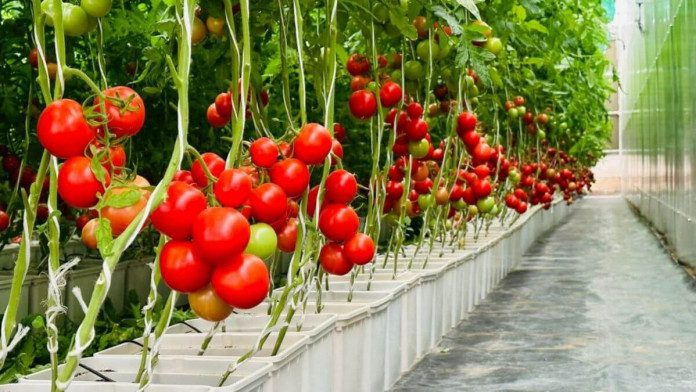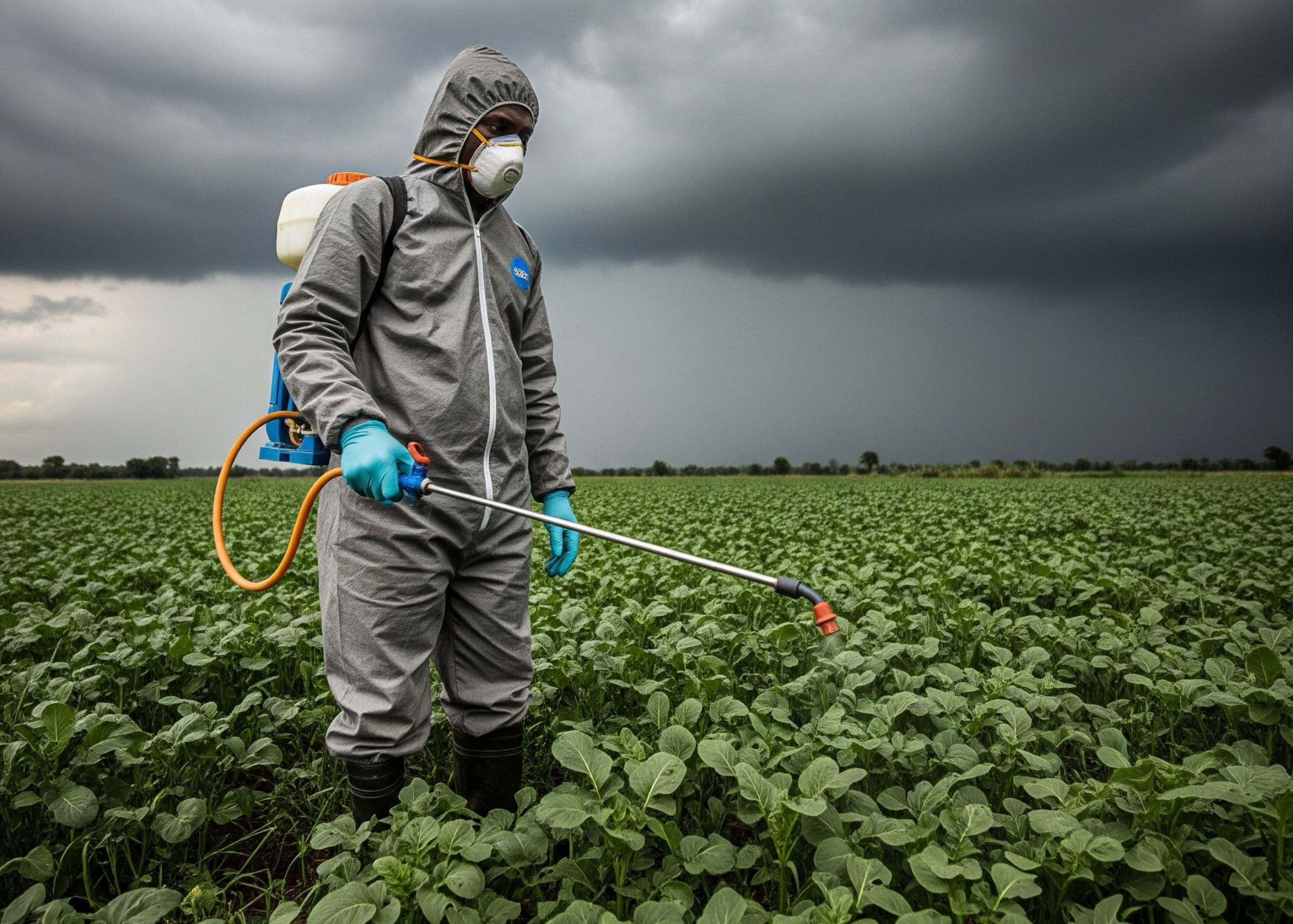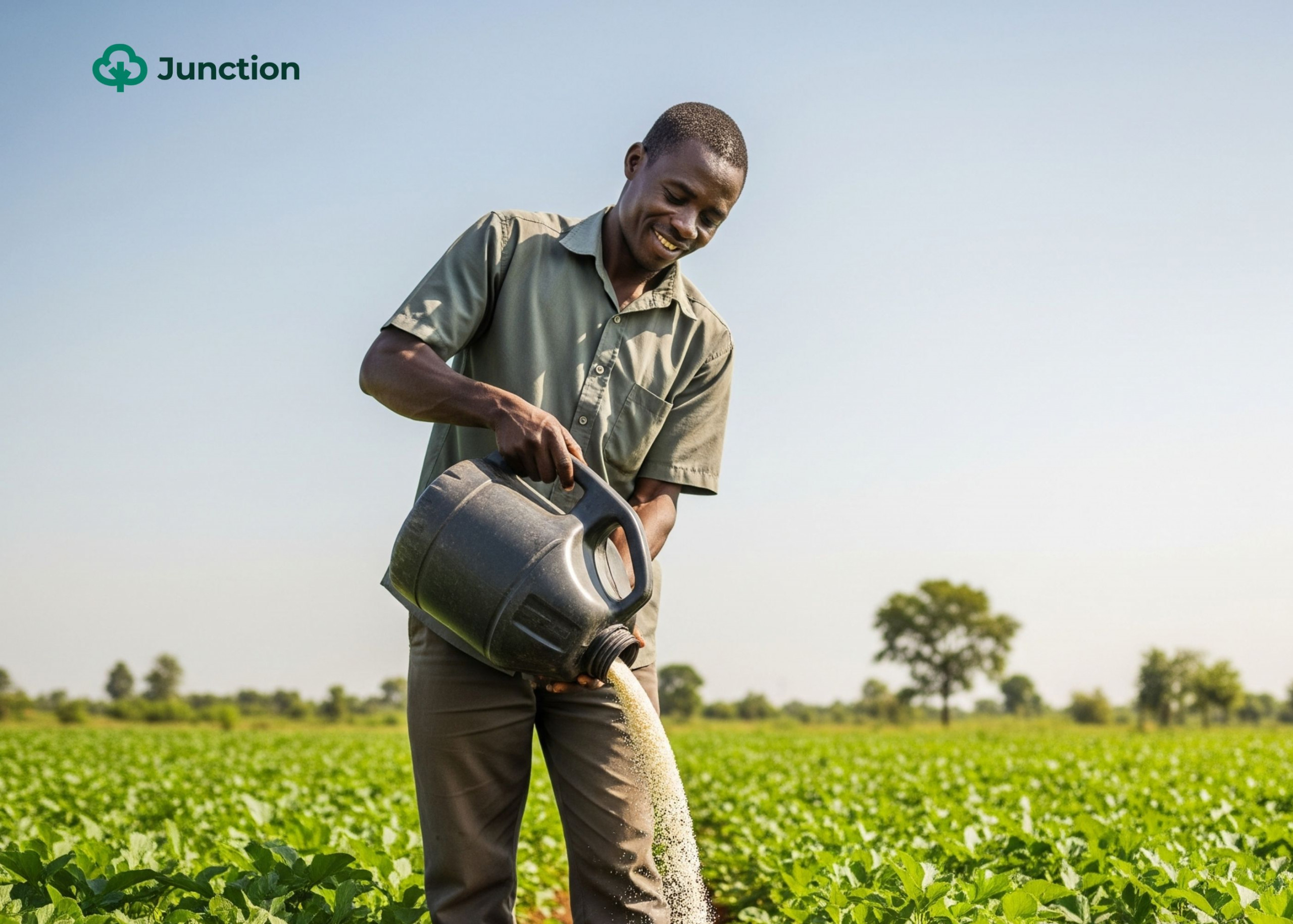Questions answered in this article:
– What does sustainable farming mean and why is it important that Nigerian crop farmers begin to adopt these practices?
– In what ways can sustainable farming increase yield of farmers in Nigeria and contribute to self-sustainability in production?
Agriculture in Nigeria is a widespread practice with nearly 150 million of its populace involved in the sector. The country’s long agriculture history means that many farming practices have been passed down from generation to generation.
Many of these practices, while they may have, once upon a time, been enough for self-sufficiency in food production, need improvements and adaptations.
Climate change, soil degradation, resource limitations, and a growing population means that there is a need to improve how food is grown in Nigeria. The good news? Sustainable farming practices offer just the right solutions.
What is sustainable farming?
Sustainable farming (or sustainable agriculture) is a way of growing crops and rearing animals, to provide food and other products without depleting resources and reducing the ability of future generations to meet their needs. It has to do with balancing production and environmental responsibility.
It is not just some fancy term coined to foist foreign ideas on local farmers. Instead, it has become a necessary way to farm or rear livestock.

Reduced tillage, for example, helps prevent soil erosion, with estimates suggesting soil loss can be much greater in conventional farming. Sustainable techniques can also minimise water pollution from runoff of excessive application of fertilisers and pesticides. While conventional farming sees higher yields initially, studies suggest sustainable practices can achieve comparable yields in the long term, particularly when considering in factors like soil health and reduced reliance on external inputs
Typically, sustainable agriculture involves the following major aspects:
- Focus on environment: It targets protecting the environment through conservative practices like reducing soil erosion, conserving water, minising agrochemical usage, and promoting biodiversity.
- Focus on the future: It targets preserving natural resources like soil, water and ecosystems to benefit generations to come rather than just getting the most out of them now, regardless of the damage this causes.
- Focus on efficiency: It targets efficient use of resources like fertiliser, water and energy to reduce volume used and help the solid build natural fertility while reducing reliance on external inputs.
- Focus on economic viability: It targets profitability to encourage more farmers to adopt sustainable practices by finding ways to reduce costs, providing access to fair markets, and potentially allowing them to earn premiums on sustainably grown products.
6 practical sustainable farming tips for Nigerian crop farmers
-
- Efficient irrigation techniques: Nigerian agriculture is heavily dependent on unpredictable rainfall which limits production cycles to one. Traditional irrigation methods, like flooding, lead to waste of water through evaporation and runoff. Effective irrigation, such as the drip method, minimises waste as it delivers water directly to plant roots. Farmers can improve yield as the crops get maximum needed to grow healthy while reducing the cost of production linked to pumping water.
- Water harvesting and storage: Agricultural success hinges on reliable water access, hence why traditional fuel pump irrigation systems used during dry season farming can cost up to 45% of the entire production of an hectare of land. Capturing rainfall and storing water for the dry season can greatly reduce cost if farmers invest in harvesting and storage systems. Techniques like rooftop collection systems and underground cisterns can work. Interestingly, rain collection is not a new technique in Nigeria and is part of the history of several communities. However, many households have abandoned these methods.
- Conservation of land resources: Land is a key natural resource required to grow food. However, inefficient land usage contributes to soil degradation, which impacts output. Traditional practices like continuous cropping depletes soil nutrients and leaves it vulnerable to erosion. Meanwhile, sustainable practices like crop rotation and fallow periods replenish nutrients, cover cropping creates physical barriers that minimise soil loss and mulching with crop residues help retain moisture to reduce reliance on irrigation and improve drought tolerance. These practices are also regenerative as they improve (regenerate) land.
- Organic farming: The world’s appetite for organic food is growing rapidly with one report pegging it at over 648% increase between 2000 and 2022. This kind of farming relies on natural methods (like those mentioned above) for soil fertility and predators for pest control, avoiding synthetic fertilisers and pesticides. While this technique cannot rival chemically-boosted agriculture in output, it makes up for it in earnings as farmers can charge a premium for organic products. In the long term, these practices are better for water retention, land conservation, and nutrients preservation.
- Hydroponics: Considered ‘soilless farming’, hydroponics involves using a water solution to provide plants with all the nutrients they require to grow instead of planting them in the soil. This practice helps to reduce land use as crops can be grown in vertical systems, especially in places where the resource is scarce. Farmers can also directly deliver nutrients to plants’ roots, minimising fertiliser runoff. In addition, the nutrient solution can be reused, reducing waste. While this practice can require initial huge investments and technical knowledge, simpler systems are being developed to solve these challenges. Aeroponics and Aquaponics are also types of soilless farming systems.
- Renewable energy: Renewable energy can provide reliable power for irrigation through solar pumps during dry seasons to ensure that farming continues. Another way it can help farmers is in preserving foods as solar dryers and coolers can ensure crops remain fresh, eventually selling at better prices. While the upfront cost of installing solar panels or other renewable energy systems can be high, support from the government and investors can encourage more food producers to adopt them.
Are sustainable farming practices worth the hassle?
Sustainable farming may sound like a buzzword and not necessarily worth the hassle, especially when you consider how ‘rewarding’ traditional commercial farming practices have been for years. The attendant costs of acquiring equipment or even organic certification, may deter some farmers. There is also the fact that farmers might have to invest some of their time and effort in learning these practices.

However, the long-term benefits, such as improving soil health, protecting the environment through reduced erosion and chemical pollution, and more seems like a good bargain for those who come after us.
In the short term, Nigerian farmers can benefit from selling produce at higher prices because sustainable practices result in healthier crops with higher nutritional value. While it might be difficult to find the right buyers to fetch premium prices, they are out there. Additionally, many of these practices are resilient or allow adaptation to climate change effects like droughts and floods.
Finally, sustainable agriculture can make Nigeria self-sufficient in production of key crops like wheat, which accounts for a a bulk of its agricultural imports and about 2.77% of its total import in the fourth quarter 2023. One major deterrent to producing more wheat is the unpredictable rain and heat cycle. Thus, sustainable faming systems geared towards accounting for these factors can significantly increase output.
If you take environmental responsibility seriously, you will have a sense of fulfilment knowing you are doing something to make things better.



